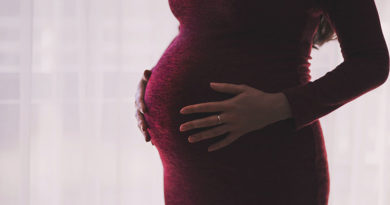Fat shaming makes people eat more – really?
I got a call at 8.30am today (Sept 11th 2014) to ask if I’d go on Radio 5 live between 10-11am to talk about ‘the fat shaming’ story. What fat shaming story?!
The Daily Mail headline was “Telling someone they’re fat makes them eat MORE: People made to feel guilty about their size are six times as likely to become obese.” The Telegraph went with “Fat shaming ‘makes people eat more rather than less‘”. The Guardian got a teeny bit more accurate, but not much, with “‘Fat shaming’ does not help people lose weight, study finds.”
Here’s the link to the original study (Dr Jackson very kindly whizzed me over a copy this am).
The article & press release
Please note from the outset the title of the study and the objective set out by the researchers.
Title: “Perceived weight discrimination and changes in weight, waist circumference and weight status” (my emphasis).
Objective: “To examine associations between perceived weight discrimination and changes in weight, waist circumference and weight status” (my emphasis again).
The press release was undeserving of an academic study – the usual headline grabbing, sensationalist, misleading at best and disingenuous at worst, which we have sadly come to expect. “‘Fat shaming’ doesn’t encourage weight loss.”
The study
The study was not an intervention. It was an observational study using the English Longitudinal Study of Ageing (ELSA) for data. As the ELSA is a study of people aged 50 years or older and as the initial sample of participants was drawn from responses to the Health Survey for England (HSE) in 1998, 1999, and 2001, this is not a study of the general adult population. This was a study of people with an average age of 66 at baseline.
2,944 people were studied over 4 years.They had BMI and waist circumference recorded in 2008-09 and 2012-13 and they were asked for their perceived weight discrimination in 2010-2011 in response to five (subjective) questions.
‘In your day-to-day life, how often have any of the following things happened to you:
1) you are treated with less respect or courtesy;
2) you receive poorer service than other people in restaurants and stores;
3) people act as if they think you are not clever;
4) you are threatened or harassed;
5) you receive poorer service or treatment than other people from doctors or hospitals.
On the basis of these questions, 5% of participants perceived that they had experienced weight discrimination. The study has just become a study of 150 people perceiving discrimination against a control group of 2,794. This is not a study of weight discrimination among 2,944 people.
The perception of weight discrimination ranged from 0.7% in the normal weight category to 35.9% of those classed morbidly obese. Men and women reported similar levels.
This is interesting. I see two shop assistants chatting rather than helping me and I just think that they’re rude. If I were morbidly obese, would I perceive that they were treating me differently because of my size?
The results
Weight: Those who perceived weight discrimination started the study almost 22kg heavier than those who didn’t.
Those who reported weight discrimination gained, on average, wait for it, 0.95kg – not even 1 kilogram! During a four year study.
Those who didn’t report weight discrimination lost, on average, wait for it 0.71kg – that’s about how much dark chocolate I eat in a week. During a four year study.
Another interesting thing – which was completely swept under the carpet – check figure 1 in the paper. There were 6 categories that were studied: normal weight at baseline; overweight at baseline; obese (BMI 30 or higher); obese class I (BMI 30-34.9); obese class II (BMI 35-39.9); and obese class III (BMI 40 or higher). The only groups that gained during the study were the normal weight and overweight people who perceived weight discrimination. All the obese categories – whether they perceived discrimination or not – lost weight on average during the study and the normal/overweight people who did not perceive discrimination lost weight or experienced no change.
Table 1 tells us that there were 7 normal weight people who perceived weight discrimination and 15 overweight people who perceived weight discrimination. Today’s world-wide nonsense is thus based on the perceptions and negligible weight change for 22 people.
From the numbers in the paper, I calculate that the Daily Mail headline about “six times more likely to become obese” derives from the following… The paper reports that “Among participants who were not obese at baseline, perceived weight discrimination was associated with higher odds of becoming obese (25.2 vs. 4.4% OR=6.67).” There were only 22 participants who were not obese at baseline who perceived weight discrimination. To achieve 25.2%, 5.5/22 of these became obese (not sure how). There were 2,102 participants who were not obese at baseline who didn’t perceive weight discrimination. To achieve 4.4%, 92.5/2,102 became obese. So, 5.5 people became obese in one group and 92.5 in the other group. The significant thing that differs is the group size. A couple of people makes a big difference in the group with 22 people. Plus – two thirds of the small group were already overweight, compared with half the large group. It is far more likely that overweight people became obese than normal weight people – in a four year period – and thus the group of 22 had another factor stacked against them. Do you think 5 people justify the Daily Mail headline?
Waist circumference: Those who perceived weight discrimination started the study with an almost 20cm greater waist circumference than those who didn’t.
Those who reported weight discrimination gained, on average, wait for it, 0.72cm – not even a centimeter! During a four year study.
Those who didn’t report weight discrimination lost, on average, wait for it 0.4cm – I doubt you could measure my waist to a 0.4cm degree of accuracy from one day to the next. Again, during a four year study.
I mean – seriously journos – do you ever look beyond the press release?!
Association, not causation.
AND this is – as always – association not causation.
Dear Daily Mail, we have no evidence that anyone was told that they were fat, just that they perceived being treated differently.
Dear Daily Mail & Telegraph, we have no evidence that people ate more. We do have evidence that obese people lost weight whatever their perception of weight discrimination. Maybe they ate less? Maybe they ate more, but better? Who knows.
Dear The Guardian, obese people did lose weight, whether ‘fat shamed’ or not.
Nothing MADE 150 people do anything. There was an association between gaining less than a kilo and losing less than a kilo and the subjective answers to 5 questions in 22 normal weight/overweight people and not even this association in 128 others.
Post Script
I have been told by many people of all ages, male and female, about the abuse experienced by obese people – particularly morbidly obese people. During the Radio 5 live discussion, “Zanita” made me gasp out loud when she shared comments that had been directed towards her. “Jenny” had been insulted by someone close to her. I’ve just been on BBC Radio Tees and Mike Parr shared comments made to him. Such behaviour is completely unacceptable, rude and ignorant.
Insulting people for any personal attribute – gender, age, diversity, size, attire, anything – is gross human behaviour and it says way more about the abuser by a margin that the abused. I think that people know if they need to lose weight. I know that they want to lose weight. I believe that our current eat less/do more advice sets them up to fail. I think that food is addictive and that obesity is a complex problem, which no insult or abuse is going to help.
BUT – a bag of sugar either way affecting 22 people in a study who perceived that they had been treated differently between two weigh-ins four years apart. Really?!
p.s. (This was the Monday newsletter for 15 September 2014)




The food industry has made people fat. I suspect that the same industry is behind the push to ALLOW people to be fat. In other words “celebrate curves”, tick us off for “fat shaming” – in other words telling people they could stand to lose a few pounds, and generally normalising a fatter population. Why on earth would an industry that is making millions out of getting us to eat more want us to be upset about being fat? Watch any film or TV footage from the 1970s and what you are instantly struck by is how skinny people were back then, it’s obvious that we are all much fatter now but we are being brainwashed into accepting it. I still have one or two items of clothing in my wardrobe from the 80s, these are size 10 – they are at least two sizes to small for me now. My up to date clothing is also size 10. Funny that.
I used to be overweight and it wasn’t easy especially during my teenage years.
I decide to lose weight not because I wanted to fit in but more on for health reasons.
The study is an eye opener for everyone especially those who make the lives of obese people a little harder.
“The MAFF National Food Survey tells us that we were eating 2,290 calories per person per day in 1975 and, by 1999, this had fallen to 1,690 calories per person per day.” I would love to know how they arrived at these data.
Were they studying 10 year olds? Or not studying at all and simply calculated this on all foods sold/population. Recent data from once source suggested the French are eating about 2800 Cal/day, Aussies 3300 and the Americans 3500. Why would Britain be so much lower?
I haven´t read a reaction by Zoe anywhere to the the recent IEA report by Christopher Snowdon – “The Fat Lie”, which contends that it is inactivity, not calorie consumption, that is behind rising UK obesity. The various statistics and graphs, based, I think, on data supplied by Defra, seem pretty convincing – particularly the decline in total calorie consumption and sugar consumption and also the large decline in activity levels.
I know it´s possible to cast doubt on the IEA´s funding sources or Christopher Snowdon´s impartiality, but if the graphs and figures are correct, then anyone who has a totally different explanation would need to account for these figures.
Hi Robert – this came out while I was on hols so I’m vaguely aware of it. Just saw one shouty video from Channel 4 at the time?! Up to my eyes with stuff at the moment but I’ll do some headlines on this when poss – check back!
Bye for now – Zoe
Hi Robert again!
Had a quick look and it would be good for a blog – just too much else going on at the moment.
Start with areas of agreement:
– I remember seeing a Channel 4 video at the time (https://www.youtube.com/watch?v=gluDOSaKDB8&feature=youtu.be) the report came out (Aug 2014) with Chris Snowden & Mike Lean debating this. Lean was taking the under reporting line and I didn’t buy this & Snowden addressed this well in the report, but didn’t defend it well on TV. The answer is, of course, that under reporting can only be the issue if this has changed over time.
– The other area of agreement is that I don’t think sat fat is an issue at all and therefore agree with Snowden that this should not be taxed. (https://www.zoeharcombe.com/2011/10/denmark-fat-tax/).
Areas of disagreement:
– Snowden states “Obesity is, by definition, the result of excess calorie consumption…” This is the calorie theory view of obesity which I, and many others simply don’t buy. It has no evidence base. (https://www.zoeharcombe.com/2014/06/the-calorie-theory-prove-it-or-lose-it/) It ignores the functions of different calories, thermogenesis and many other factors. (http://www.theobesityepidemic.org/2014/02/a-calorie-is-not-a-calorie-and-heres-the-reason-why/)
– This belief follows from another wrong assumption on thermodynamics. P20 of the report makes the usual calorie theorists’ claim about these laws. Thermodynamics says nothing whatsoever about dieting or weight. It is about movement of heat. (https://www.youtube.com/watch?v=szRucLvNC4s)
– Why pick the period of relative weight stability (2002-2012) when the 10 fold increase in obesity occurred between 1972 and 1999? The answer would seem to be availability of eating out data, but that’s not a good enough reason. I looked at the 1975 – 1999 period specifically in my 2010 obesity book. Passage below…
“The MAFF National Food Survey tells us that we were eating 2,290 calories per person per day in 1975 and, by 1999, this had fallen to 1,690 calories per person per day. If we apply the 3,500 calorie formula, to the change in annual average calorie intake, all other things being equal, we should have lost an average of 62.6 pounds per person during this period. Instead obesity rose nearly ten fold during this time.” I’d like to see Snowden/calorie theorists explain how what should have been a 62.6lb loss (min – that’s fat, not weight) turned into a 20lb average gain (using American estimates for the gain – all explained in my book).
I quoted this classic from the FSA in the book – this is essentially the words behind Snowden’s fig 2.
“The Food Standards Agency (FSA) web site also acknowledges the above conundrum, “Since the 60s we’ve been consuming fewer calories from household food (this doesn’t include eating out). However, there are an increasing number of people who are overweight or obese. The reasons for this are not clear.”
I would suggest – the reasons for this are because the calorie theory is complete and utter nonsense!
There are then the conflicts acknowledged by Snowden in the ch4 interview (but not declared in the paper) and the fact that the ‘we’re lazy/not greedy’ plays right into the hands of the fake food companies.
All in all – anything based on false assumptions is not going to make sense.
Hope this helps
Best wishes – Zoe
Thank you Zoe for more truth-telling, myth-busting and headline-exposure!
As for this:
‘In your day-to-day life, how often have any of the following things happened to you:
1) you are treated with less respect or courtesy;
2) you receive poorer service than other people in restaurants and stores;
3) people act as if they think you are not clever;
4) you are threatened or harassed;
5) you receive poorer service or treatment than other people from doctors or hospitals…
Almost EVERYONE feels like this at some time, thin, fat and medium sized people. So it’s ridiculous to say that when it happens to “overweight” (whatever that means) people, it must be because of their size. I currently have four friends suffering from mistakes made my doctors/hospitals, and all those friends are slim.
Well said Helena! Also – how does anyone know what happens in the patient room next to them?! If I’m getting good or bad service in a restaurant – unless Basil Fawlty is around, I don’t know what anyone else is experiencing!
Of course there’s no weight loss from weight discrimination. It’s a zero-calorie event!
Okay, dumb jokes aside, let’s reverse this for a second. Hypothetically, what if there _was_ a significant loss of weight. I.e. the fat-shamed group loses a _very_ significant amount of weight relative to the other group. What’s the mechanism? Would we then be recommended to taunt obese people until they’re thin?
Basically: is there any way this would have been published if it had _encouraged_ fat-shaming?
Good question!
I heard the “summary” on Radio2 during the news. Even the scant details they gave then made me wonder WHY this “study” had even made the news and how on earth anyone would pay for such a rubbish, wasting 4 years. When the news reader mentioned 1Kg of weight gain in FOUR YEARS I also wondered how anyone could possibly think this “study” was even worthy of the paper on which it was printed, never mind being read on out national news.
The news reader only mentioned “weight loss” in those who weren’t discriminated against without giving a figure, and now I know why – it wasn’t even 3/4Kg! I could lose about as much by having a good shit, which is about as much as this “study” is worth.
LOL Mark! I said the same on Radio Tees this am – didn’t use the sh!t word itself but said my hubby can lose more than that after going to the toilet! Good to see others were instantly spotting it for the cr@p that it is!
Except it isn’t mere eat-less/do-more. The “advice” implies if you can’t make yourself starve, you are a glutton, and if you aren’t doing-more until you are exhausted, you are slothful. As in the cardinal sins. That it does not work (eat-less, but keep the sugar) does not matter. The “advice” implies failure can only be from a lack of temperance and fortitude.
The “advice” is at sum, stop sinning by showing virtue. And any failure therefore must be a shameful moral failure.
That is the opposite of the “stop eating lotus, poisoning yourself with addictive, unhealthy foods” advice. Which happens to work.
You can stop smoking tobacco, but you can’t stop eating. You can only stop eating the addictive foods.
You are right! I quit cold turkey a few months ago because I was diagnosed with hypertension. My doctor suggested that I quit my smoking gradually, but I decided to quit on the day. It was hard because I had withdrawal syndrome for a week and I endured it because I need to. I am okay now and do not get tobacco cravings anymore.